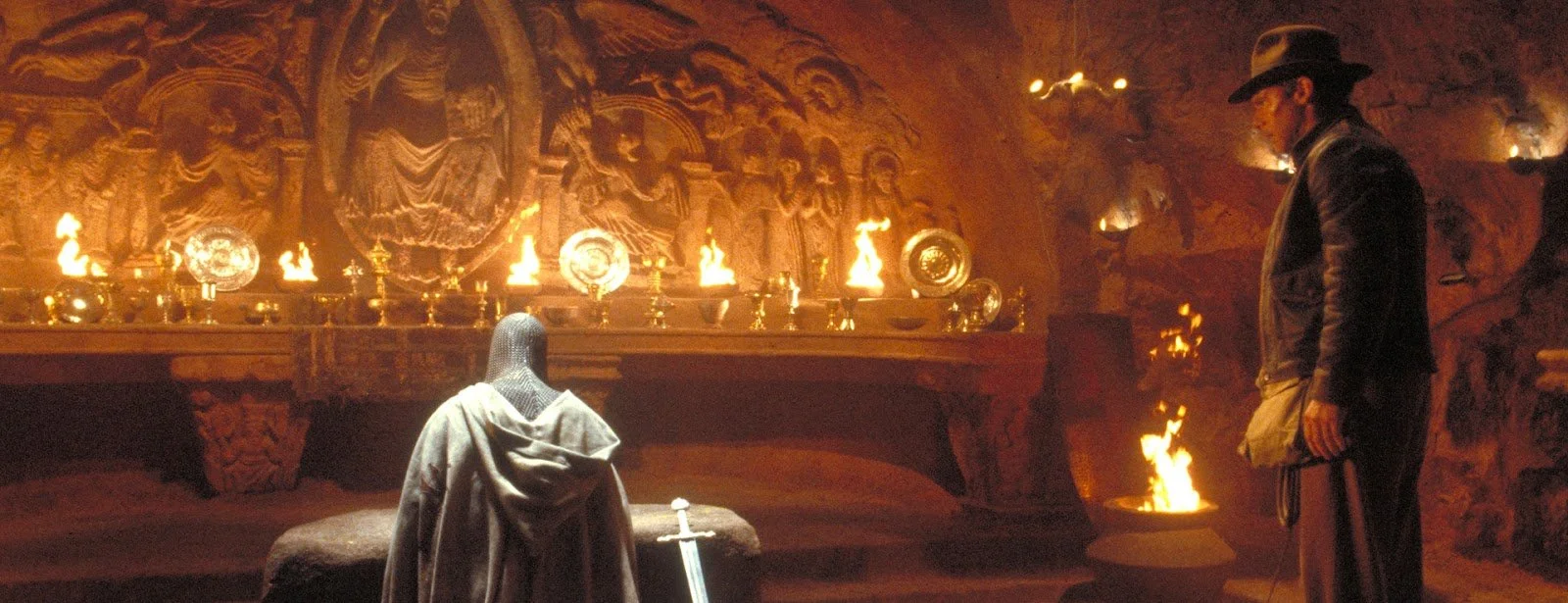By Nicolas Calandra
I am the vine: you the branches. He that abideth in me, and I in him, the same beareth much fruit: for without me you can do nothing. (John 15:5).
~
In the name of the Father, and of the Son, and of the Holy Spirit. Amen.
We rely totally on God. And our life of prayer should reflect that.
At the end of the film Indiana Jones and the Last Crusade, Indy needs to urgently work his way through a cave full of traps. He has in his hand a notebook with clues. The first one reads: “Only the penitent man shall pass.” He tries to figure it out. “The penitent man is humble before God.” At that moment he realises he must kneel, and the trap misses his head. Only the man who kneels before God can be saved.
Benedict XVI tells a story from the Desert Fathers where the devil appears to a hermit. He is black and frightful, but the monk notices that he has no knees. Pope Benedict tells us, “the inability to kneel is seen as the very essence of the diabolical.” The devil is incapable of humbling himself and kneeling before God. He is incapable of prayer.
Prayer on holidays
We’ve been blessed to have the Seminary timetable to structure our day so that it always begins and ends with prayer. Now we are coming up to holidays, this will be tested.
There is one particular form of prayer I think we need to particularly take care of; our time of meditation, or mental prayer. I think this is the one practice most at risk of being neglected on Saturdays, and especially on the holidays.
By mental prayer, we are talking about “taking time frequently to be alone with Him” who loves us (St. Teresa of Avila). This is personal prayer, which is different to our Divine Office and Spiritual Reading. Canon Law actually says that clerics are to “devote themselves to mental prayer” in addition to the Office (Canon 276).
It involves talking directly to Him as to a friend. Often you might read the Gospel of the day, apply it to our lives, and ask Our Lord for graces, making acts of love, adoration, sorrow. Basically, to humble ourselves like children, and to speak with God with simplicity.
Preparing for the future
This is very important to prepare us for a future of business in the parish. There will be many distractions in your mind. St. Pius X wrote in his letter to the clergy, Haerent Animo, that there is a real danger of being so taken up by doing ‘good works’ that we start to drop off in being with God in mental prayer. And this has effects on the priest’s own spiritual life, and even his effectiveness in ministry. I quote:
“there can be no solid achievement, nothing of lasting benefit, in the absence of the heavenly dew which is brought down in abundance by the prayer of the man who humbles himself.”
Many of us are always struck by the Missionaries of Charity. They radiate the spirit of the Gospel. Their piety is not sentimental, but formed by deep convictions. Is this not because they start each day with a Holy Hour with the Lord?
If our piety is to be deep and formative for our life, it must be based on a discipline of prayer. A discipline that is consistent and persistent. To chat with Our Lord is a pleasure, a treasure. We want to take care of this time, so we should schedule it in, at home, in the parish.
Let’s go back to Indiana Jones overcoming the traps and many dangers on his journey: Only the penitent man shall pass. Only the soul who humbles itself before God – humbly beginning and beginning again - can come through the trials of this life to the glory of Heaven. No matter how dry prayer is, how difficult, how burdensome, even if we have had bad days, let us begin again. “I am the vine: you the branches. He that abideth in me, and I in him, the same beareth much fruit: for without me you can do nothing.”
